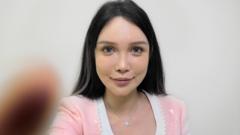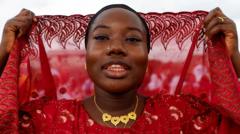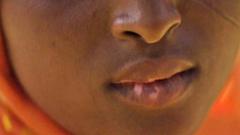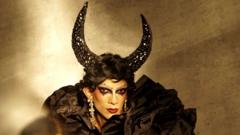In a groundbreaking move, the Miss Ivory Coast pageant has banned wigs and weaves to celebrate natural hair, challenging traditional beauty norms and prompting discussions about self-identity among contestants.
Natural Beauty Reigns: How Ivorian Pageants Are Redefining Standards
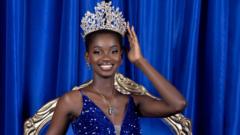
Natural Beauty Reigns: How Ivorian Pageants Are Redefining Standards
The Miss Ivory Coast pageant introduces a no-wig policy to promote natural beauty, sparking a cultural shift in beauty standards.
Article text:
Longtime beauty pageants in Ivory Coast, known for their heavy reliance on wigs and weaves, are facing a transformative shift with the introduction of new rules favoring natural hair. This shift garnered attention following the crowning of Marlène-Kany Kouassi as Miss Ivory Coast in 2022, who is celebrated for sporting her short natural locks. Her victory marks only the second time in over six decades that a contestant has won without extensive hair enhancements, a trend that is becoming increasingly questioned.
Notably, changes to the Miss Ivory Coast competition this year include a ban on all wigs, weaves, and hair extensions from preliminary rounds held across the country. The competition's president, Victor Yapobi, emphasized that the initiative aims to embrace a more authentic representation of beauty, advocating for contestants to wear their natural hair, whether styled with braids or straightened.
In addition to hair standards, the pageant now welcomes contestants under a new minimum height requirement of 1.67 meters (5.4 feet) and has raised the age limit to include participants up to 28 years old, alongside reducing the participation fee to make the pageant more accessible. Many hopeful contestants see this as an empowering move, allowing them to embrace their true selves.
One contestant expressed her excitement at the changes, noting the confidence boost provided by the ability to compete without the pressure to wear artificial hairstyles. However, reactions have been mixed, with some participants, like makeup artist Astrid Menekou, initially surprised by the stipulations, later expressing newfound appreciation for their natural beauty.
Amidst these changes, significant concern has arisen regarding the economic state of the hair industry in Ivory Coast. Wigs and hair extensions play a major role in the beauty market, generating substantial revenue. Salon owner Ange Sea voiced her worries, acknowledging that the new rules could lead to financial hardship for businesses reliant on the wig market.
Despite the economic concerns, the new focus on natural beauty reflects a growing movement among black women globally, embracing traditional hair types and styles. Influencers and natural hair advocates are increasingly gaining visibility on social media, altering perceptions surrounding natural hair in professional settings.
As the preliminary competitions unfold, discussions surrounding beauty standards continue to evolve. Ultimately, this initiative may catalyze broader acceptance of diverse beauty in the Ivorian culture, as many women navigate their identities between baring their natural hair and experimenting with cosmetic hair enhancements.
The final Miss Ivory Coast competition scheduled for June 2025 may further solidify these new standards, with Yapobi hinting at potential continuity of this initiative depending on its reception. As Doria Koré, crowned Miss Haut-Sassandra points out, winning an accolade with natural hair signifies a greater shift toward recognizing the beauty inherent in African women. For many contestants, the essence of these rule changes transcends competition outcomes; they emphasize personal empowerment and newfound confidence in embracing their authentic selves.
Longtime beauty pageants in Ivory Coast, known for their heavy reliance on wigs and weaves, are facing a transformative shift with the introduction of new rules favoring natural hair. This shift garnered attention following the crowning of Marlène-Kany Kouassi as Miss Ivory Coast in 2022, who is celebrated for sporting her short natural locks. Her victory marks only the second time in over six decades that a contestant has won without extensive hair enhancements, a trend that is becoming increasingly questioned.
Notably, changes to the Miss Ivory Coast competition this year include a ban on all wigs, weaves, and hair extensions from preliminary rounds held across the country. The competition's president, Victor Yapobi, emphasized that the initiative aims to embrace a more authentic representation of beauty, advocating for contestants to wear their natural hair, whether styled with braids or straightened.
In addition to hair standards, the pageant now welcomes contestants under a new minimum height requirement of 1.67 meters (5.4 feet) and has raised the age limit to include participants up to 28 years old, alongside reducing the participation fee to make the pageant more accessible. Many hopeful contestants see this as an empowering move, allowing them to embrace their true selves.
One contestant expressed her excitement at the changes, noting the confidence boost provided by the ability to compete without the pressure to wear artificial hairstyles. However, reactions have been mixed, with some participants, like makeup artist Astrid Menekou, initially surprised by the stipulations, later expressing newfound appreciation for their natural beauty.
Amidst these changes, significant concern has arisen regarding the economic state of the hair industry in Ivory Coast. Wigs and hair extensions play a major role in the beauty market, generating substantial revenue. Salon owner Ange Sea voiced her worries, acknowledging that the new rules could lead to financial hardship for businesses reliant on the wig market.
Despite the economic concerns, the new focus on natural beauty reflects a growing movement among black women globally, embracing traditional hair types and styles. Influencers and natural hair advocates are increasingly gaining visibility on social media, altering perceptions surrounding natural hair in professional settings.
As the preliminary competitions unfold, discussions surrounding beauty standards continue to evolve. Ultimately, this initiative may catalyze broader acceptance of diverse beauty in the Ivorian culture, as many women navigate their identities between baring their natural hair and experimenting with cosmetic hair enhancements.
The final Miss Ivory Coast competition scheduled for June 2025 may further solidify these new standards, with Yapobi hinting at potential continuity of this initiative depending on its reception. As Doria Koré, crowned Miss Haut-Sassandra points out, winning an accolade with natural hair signifies a greater shift toward recognizing the beauty inherent in African women. For many contestants, the essence of these rule changes transcends competition outcomes; they emphasize personal empowerment and newfound confidence in embracing their authentic selves.







